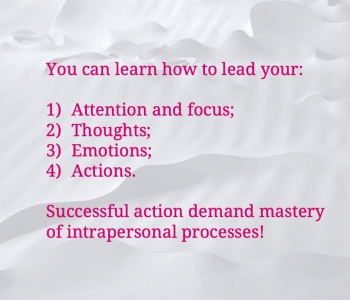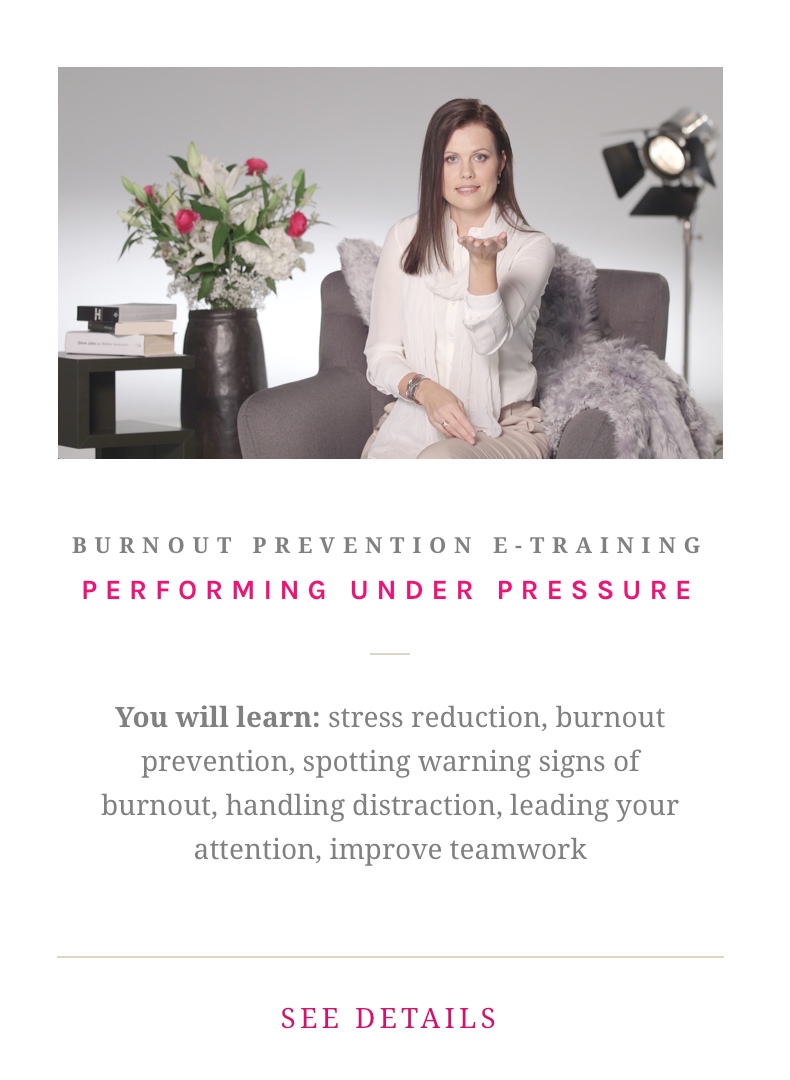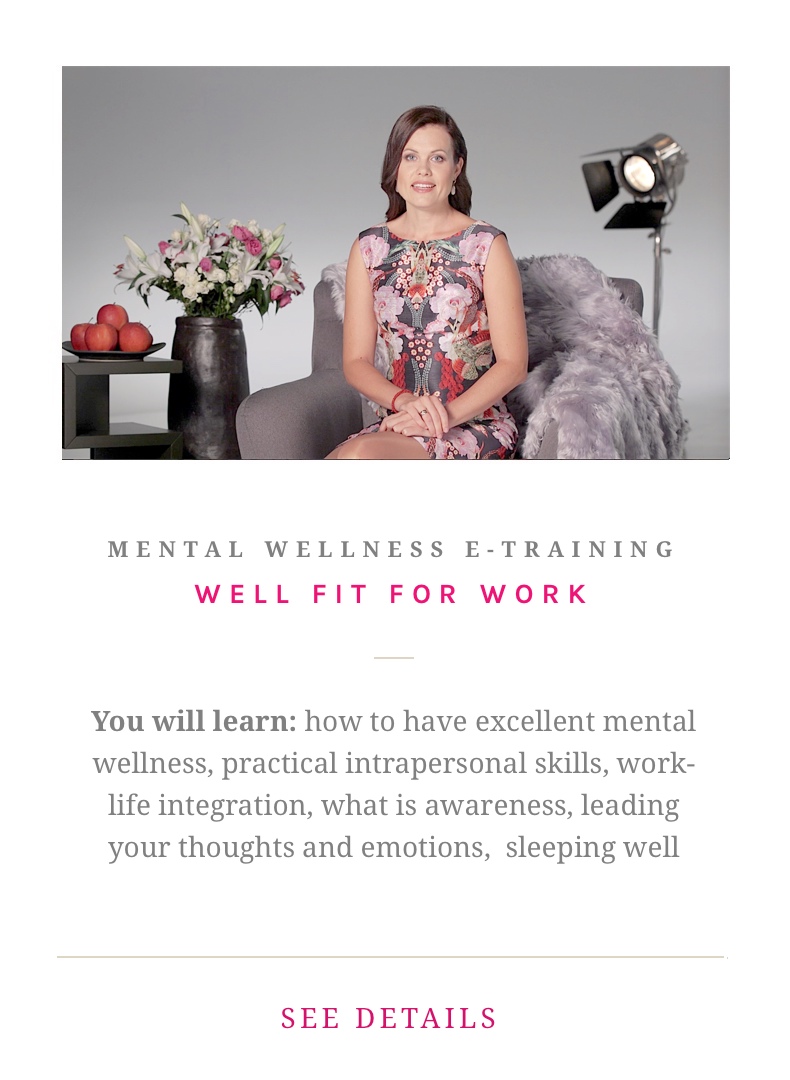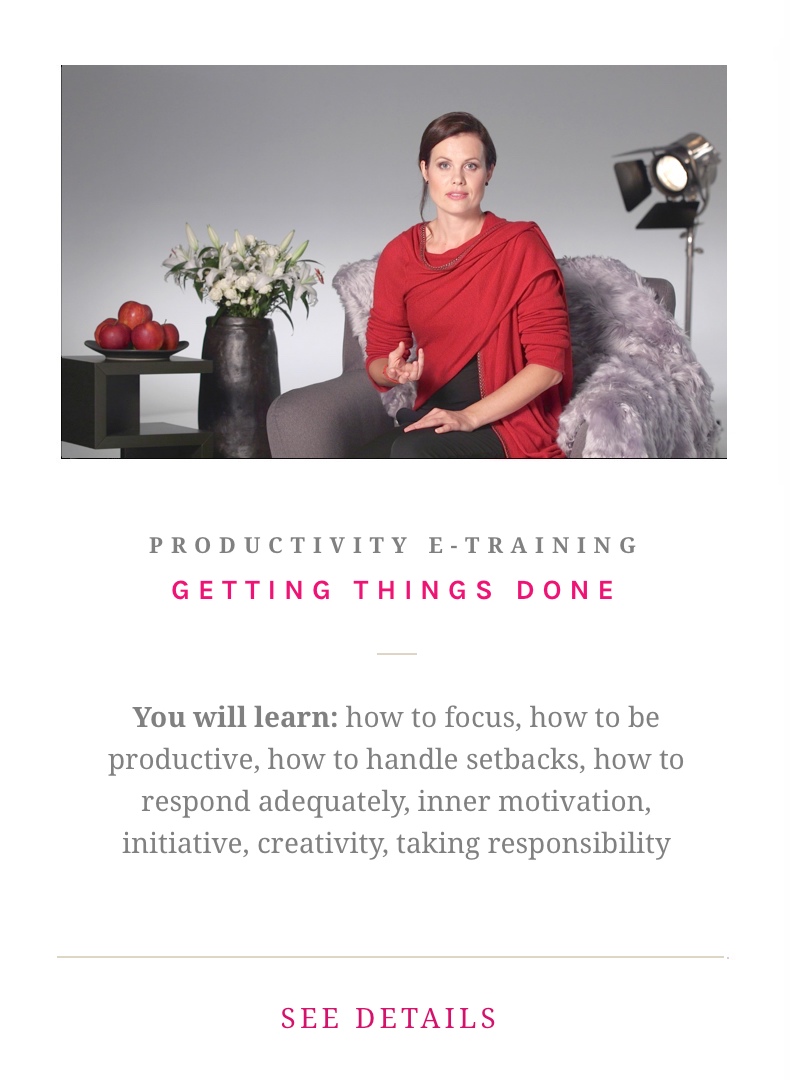Why a Holistic Approach is Essential for Mental and Physical Wellness
A lot of fears, stress and anxiousness happen because of our wrong identity. Most of us have lost contact with inner silence and our True Self. We also struggle with short attention spans and a lack of clarity about our true identity.
Until we identify ourselves solely with our physical body or mind, we often find ourselves chasing what we like and avoiding what we dislike, seeking happiness in external things. These external sources of perceived happiness may vary. Those could be material possessions, fame, titles, work-related or personal achievements, or even our relationships with others. Fueled by the brain's innate drive for pleasurable emotions, this relentless pursuit shapes the way we live, as we tie our sense of happiness or unhappiness to what we gain or lose.
Such a mindset is inherently stressful, as it places our well-being at the mercy of external circumstances that are often unpredictable and fleeting.
In the external world, the highs of acquiring what we desire are inevitably followed by the lows of loss, failure, or the constant need for more. This creates a cycle of dissatisfaction and easily leads to depletion. As a result of prolonged stress, many experience burnout, leaving little room for true peace or fulfillment.
A stress-free life is an inside job
Breaking free from this pattern requires a shift in your own perspective. By recognizing that your true happiness stems not from external objects but from within you, you gain the power to detach from such a common, endless pursuit.
When you cultivate self-awareness and learn to distance yourself from your reactive thoughts, imaginations, and emotions, you can lead your intrapersonal processes rather than be led by them. However, for this, you need to learn intrapersonal skills, as those are the foundation of mental wellness and self-leadership.
When you become less dependent on external factors for well-being, you begin to see life more clearly. The interconnectedness of all things becomes more evident, and the world no longer feels like something to control or exploit.
Only when your mind is well and you know how to keep calm and reduce stress, can you feel empowered and feel well. So, check your stress level and then read on!
.jpg)
The healthy way of seeing the world
The healthy way is to see the world around us as an extension of ourselves.
When your mind is calm, you can see that the world is mostly a source of beauty, wonder and meaning. Of course, sometimes we all meet challenges and difficult situations, but those become the majority only when our mind focuses on seeking such events.
When you think and fear bad things and experiences, your mind starts to seek such events. Have you noticed it? So, is it wise to worry and think about all that could go wrong?
Maybe it is wiser for you to seek solutions and serve others so that others can help you when you need it.
Have you noticed that when you help others at work or in your family, they become happier to support and help you?
Such an inner shift reduces stress and fosters a profound sense of inner calm and wholeness, enabling you to embrace life with resilience and purpose.
You are not your mind or body!
Only when you learn to distance yourself from different mental and emotional processes can you feel inner freedom and become true leaders of your thoughts, imaginations and emotions.
Intrapersonal skills take you even further; those self-leadership tools allow you to lead what you sense and become aware of (see the graph below). Both sensing and awareness can be directed by you at will, permitting you to gain understanding faster than relying on thoughts, emotions and the physical body.

Intrapersonal skills go even further and allow you to access creativity and trust your intuition at will, anytime and anywhere. You can also notice more and distinguish what is important at any given moment.
The less you rely on external factors for happiness, the more you will understand their interconnectedness to your own life.
This is the paradox: as long as you see yourself limited to your physical body and mind, the world may feel threatening or like something to exploit. But when you connect with your deeper core, you realize the world is an extension of yourself.
Such a shift brings inner calm, a sense of wholeness, and the ability to notice the beauty around you and within you.
The holistic model reduces stress and health issues
Wholeness is a holistic model that empowers us to live with clarity and fulfillment.
Holistic is based on the word holism, defined in Merriam-Webster Dictionary as "a theory that the universe and especially living nature is correctly seen in terms of interacting wholes (as of living organisms) that are more than the mere sum of elementary particles."
Despite all the advances in technology, pharmaceuticals, and surgical skills, we have not made significant strides in preventing mental health issues.
While physical exercise reduces physical health issues, a serene mind contributes even to preventing the most common diseases. It is the worry, stress, anxiousness, and other inner turmoil that move your health on a downward spiral.
Most workplaces have no prospective mental wellness approach, and our schools still lack mental wellness lessons. Most of us have no intrapersonal education.
The source of proactivity is the inner motivation to change our lifestyle. Our lifestyles influence how we think and feel about ourselves, the world around us, and our health more than most of us are aware.
Most of our stress and mental health issues originate from our lifestyle choices and from the fact that we mostly run on subconscious autopilot mode, unaware of what is best for our mind and body.
A holistic mental wellness approach is a must to address prevention, as mental and physical health are deeply interconnected.
A healthy and resilient mind naturally recognizes the importance of maintaining a healthy physical body, creating a harmonious balance between the two.
If training your physical body alone were enough to secure overall well-being, no athlete would experience mental health issues. Yet, many do. Athletes, despite their peak physical fitness, often face stress, anxiety, and other mental health challenges. This illustrates that physical strength alone isn't a substitute for mental wellness.
|
Intrapersonal skills development
To truly thrive, we all must train our minds with the same dedication we apply to our bodies. Learning practical intrapersonal skills is what empowers us to navigate life's pressures and maintain mental well-being.
Prioritizing mental fitness ensures a foundation of holistic health that sustains both performance and personal happiness.
By fostering a mentally fit mindset, we can not only transform individual well-being but also reduce the overwhelming costs of healthcare, ensuring that prevention becomes a foundation for thriving, not just surviving.
In the workplace, our mental wellbeing is affected by various factors, including our job demands, daily habits, personal skills to reduce stress and burnout, etc.
Only when you are a master of leading your thoughts, imagination, emotions, and your physical body can you cultivate healthy relationships with colleagues, contribute to securing a good work environment, and take more personal initiative. It is the intrapersonal skills development that makes the difference.
It is foolish to hope that someone else fixes you and your workplace or your family situations. You need to lead the change you desire to see. And if such a change is not welcomed and toxic leadership remains, you need to leave.
Mental health challenges only partially stem from external stressors. If you could avoid negative reactions and develop the ability to stay calm, you would gain the power to remain stress-free. That is why practical intrapersonal skills are the solution (see the video below).
It's crucial to understand that our mental and physical health are not separate from our work life; they are intertwined. Addressing these imbalances holistically can improve overall wellbeing and workplace performance. That is why we often write and talk about work-life integration and its impact on stress reduction.
Intrapersonal skills mastery is the holistic model that reduces stress and mental health issues before they have the power to cause you problems.
Conclusion
A holistic approach to mental wellness is not just ideal but essential in today’s high-pressure world. While training the body enhances physical resilience, it cannot address the stress, anxiety, or mental health challenges that people face. Mental fitness must complement physical training to build true and lasting well-being.
Stressors alone aren't the sole cause of mental health struggles; our inner reactions to stressors play a critical role. By cultivating inner calmness, self-awareness and learning intrapersonal skills, you can reduce stress, prevent burnout and build resilience.
A proactive commitment to training both the body and mind fosters harmony, reduces suffering, and enables us to live healthier, more balanced lives. You and most of your colleagues already train the physical body, so don't stop here; start training your mind today! It is a win-win deal as you feel and work better.
|
This blog post is contributed by Kaur Lass





